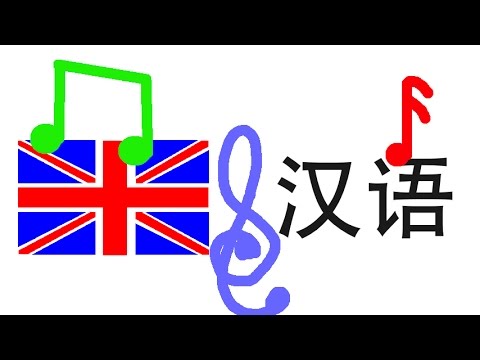Xidnaf
“Tone” doesn’t make any sense when you think about it.
NOTE 1: Sometimes people will talk about “secondary stress” or “secondary accent” or something like that. This is a thing, but what I’m talking about here is “primary accent,” which is the most stressed syllable in the word. I know it might sound redundant to say that there’s only ever one syllable with primary accent, but let me put it this way: there are never two syllables in a word that are tied for being most stressed. This way of thinking about stress/accent is different from the way I learned about it at first, and I think what’s going on is that the way linguists talk about it is different from the way it’s treated in English poetry, which is what people are taught in English classes.
My Patreon: https://www.patreon.com/Xidnaf
Intro Song: https://www.youtube.com/watch?v=AWXvSBHB210
Outro Song: https://www.youtube.com/watch?v=IqiSIGJJehw .




sorry in advance for all the backwards music notes. I had no idea there was a correct side to draw the line on
From someone who speaks Vietnamese, be glad you don't have to use tonal language.
In Chinese we actually create characters for post-lexical meanings like "嗎"
this character often sticks behind question sentences. and its tone is high which makes the whole sentence's tone relatively rise at the end
So, English needs accent marks
Swedish is a pitch-accent language. We can say andén (the spirit) and ánden (the duck).
Introduction of tones adds another dimension of phonetic variations, which makes one syllable able to carry more information(like a 4-byte RGB color with an extra Alpha channel), thus contributes to reduced syllable count and simplified vowels and consonants. That makes it possible for modern northern Chinese language (Mandarin) to totally drop the ending consonants (k p t) and solely rely on tones to distinguish syllables.
Three common phonetic strategies to distinguish meanings:
1, Increasing number of syllables(Japanese),
2, Adding consonants within a single syllable (Germanic/Proto Sino Tibetan),
3, Introducing tones,
How do Chinese people sing and convey the right meaning?
Groot is a Tonal Language, right?
I lived with Cantonese parents for 16 years and I still have no idea about the tones
y a n g t z e
I’m Spanish and in Spanish accents are very important while writing so I already knew this because I learned when I was eight. These words that are only differentiated by accent are written differently in Spanish:
Comete ( cométe ) = He/she commits.
Cómete (cómete) = eat yourself.
A dialect of Dutch is actually a tonal language
me watches video: ah that makes scene
also me:what the hell just happend
You use Audacity?
In Swedish the word anden can mean spirit or duck depending on the the pitch.
Is it caramel or caramel?
huh? – what did you say, I wasn't paying attention?
huuh? – what did you say, I didn't understand?
huuh – that was weird
huh – ok then
huh! – that was curiously funny
h(u)h – i'm too tired to laugh right now, but I understood the humor
hUh? – you've just said something really dumb, are you sure you know what you're talking about?
1 word that means complete opposites in multitude succession…..all tonal, none taught, yet mostly understood. I think it might even be built-in to human understanding across all languages, maybe back to the caveman days of grunting?
but this applies to every other language so yeah english isn't tonal or unique in that way
3:00 the Arabian peninsula tho…
Though I coughed roughly and hiccoughed throughout the video, i still thought i could plough through the rest of it.
A tonal language is a language that uses tone to disambiguate lexical meaning. Solved.
Puberty in a nutshell
For the chinese word 媽/馬 its “mā” (high tone) and “mǎ” (falling and rising, not rising)
When you hear that intro you know an epic video is about to drop
Yes we do have tones.
plis come back